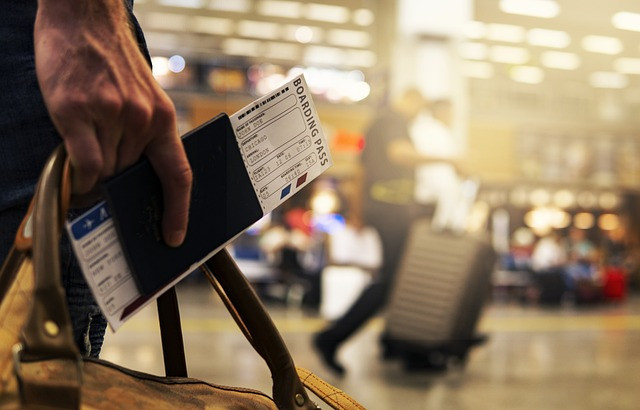Singapore Knocks Off Japan To Be World's Most Powerful Passport; US Falls Behind

KEY POINTS
- Singapore passport holders can now visit 192 travel destinations without prior visa
- Japan slips to third place after being at the top spot for five years
- The U.S. ranks eight in the index, reflecting its diminishing passport power
Singapore's passport has emerged as the most powerful passport in the world after overtaking Japan, which enjoyed a five-year stint at the top spot, according to the latest Henley Passport Index.
The rankings also reflect the United States' diminishing passport power as it has "fallen behind."
Travelers holding a Singaporean passport currently enjoy visa-free entry to 192 out of 227 destinations in the world. Japan dropped to third place after the number of destinations Japanese passport holders could access without a visa fell from 193 in 2022 to 189, according to a press release from London-based immigration consultancy Henley & Partners.
Germany, Italy and Spain settled for a tie at second place as their citizens can access 190 countries without a prior visa. Austria, Finland, France, Luxembourg, South Korea and Sweden share the third place with Japan in the global passport ranking for 2023. The rankings are based on exclusive and official data provided by the International Air Transport Authority (IATA).
The U.S. ranks eighth in the passport index with 184 visa-free destinations. It saw the smallest increase in its index score over the last decade among the top 10 countries. The U.S. has been sliding down the index for about a decade despite being in the top spot earlier.
"By more or less standing still, the U.S. has fallen behind. While its absolute score has in fact risen over the last decade, the U.S. has been steadily overtaken by rivals such as South Korea, Japan and Singapore. America's relentless slide down the rankings — and unlikelihood of reclaiming the highest position any time soon — is a warning to its neighbor Canada and the rest of the Anglosphere as well," said Greg Lindsay, leading global strategist and urban tech fellow at Cornell Tech's Jacobs Institute.
This static state of affairs in the U.S. is likely to continue "due to the lack of a demand from inside the U.S. for a change in policy, the extreme political risk for any group or politician who unwittingly facilitates travel by a terrorist, and the fact that tourism has surged post-pandemic anyway, even with a restrictive visa waiver program. Unfortunately, that status quo, over time, may well contribute to a decline in U.S. soft power if businesses struggle to invite partners to trade shows and meetings, tourists encounter needless application delays and look elsewhere, and open xenophobia erodes the public reputation of the US as a world leader," the immigration consultancy said.
The U.K. has seen a notable change in the global passport ranking this year as it jumped two places to No.4 after a six-year decline. Both the U.S. and the U.K. held the number one spot on the index in 2014 before they plummeted.
The three weakest passports in the Henley Passport Index are Afghanistan with a visa-free access score of 27, Iraq with a score of 29 and Syria with a score of 30.
© Copyright IBTimes 2024. All rights reserved.





















